#Bryon Widner
Explore tagged Tumblr posts
Text
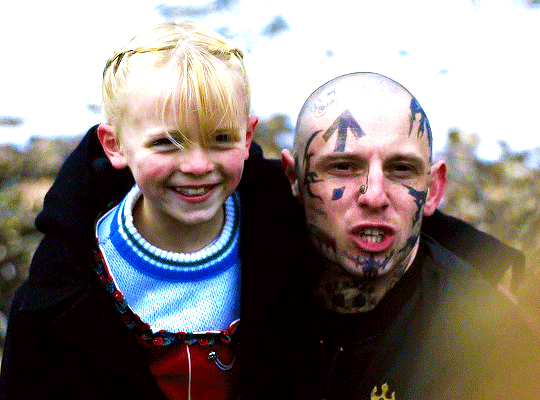


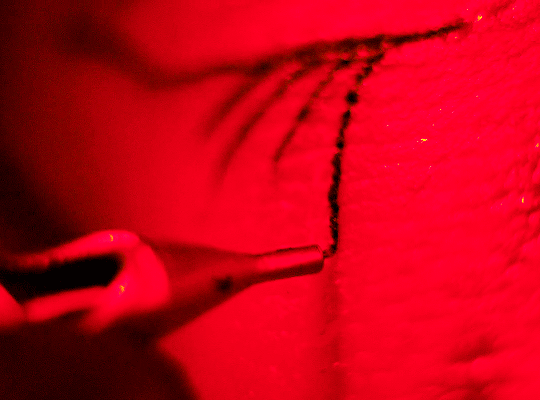


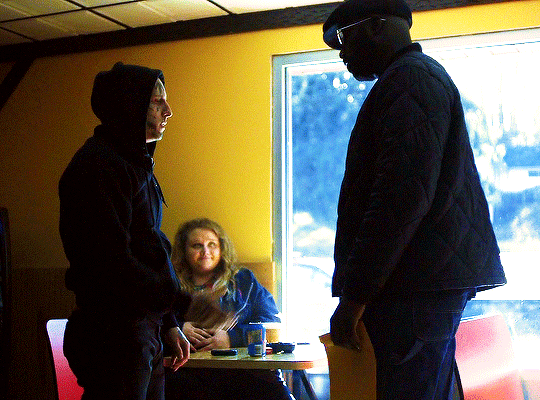



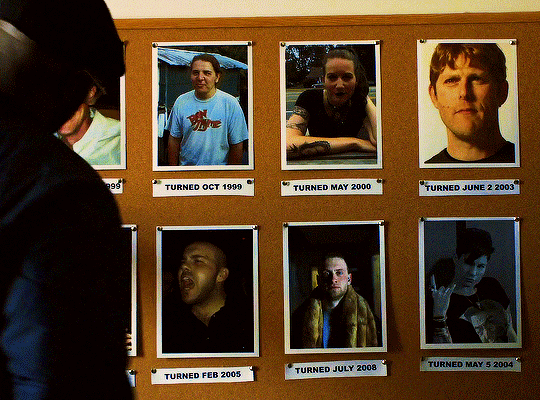
What if I take all this stuff off and I'm still a piece of shit?
Skin | 2018 (dir. Guy Nattiv)
#jamie bell#danielle macdonald#filmedit#fyeahmovies#filmgifs#moviegifs#cinemapix#dailyflicks#skin#jamiebelledit#jbelledit#daniellemacdonaldedit#bryon widner#moje
36 notes
·
View notes
Photo


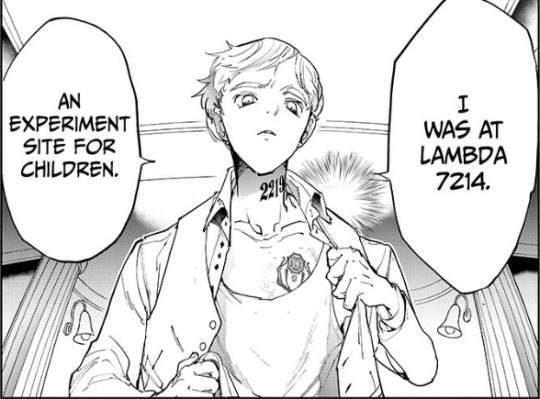
Something that doesn’t surprise me due to how prevalent they are as visuals to remind the audience what series they’re reading and for the multitude of things they represent but is still of interest to me is how I’ve never seen discussions or fanfics that touch upon the removal of the farm tattoos or Lambda branding once the setting switches to the human world. I’ve seen the latter mentioned as a point of distress post-canon (shout-out to chapter 3 of banana_slug_army’s Sunshine and Solace; definitely check it out if you’re a NER enthusiast), but the thought of removing them is never seriously considered by the kids or Moms and Sisters.
Below the cut is an assortment of reasons I’ve gathered for why this is and some musings on them:
1. Pain of Removal (Physical and Monetary)
This reason is the easiest to handwave. With fantastical creatures like demons being real in this universe, it’s not much of a leap to ask your audience to believe there is now an entirely painless procedure to remove tattoos or brands.
However, if someone wants to venture down that route, it is interesting to consider, especially given how young a decent amount of these kids are. Doing a quick search for tattoo removal and children understandably doesn’t yield many results, so I’m wondering if it’s something that should even be attempted on the youngest of them with the damage it could do to their skin. It could take multiple sessions before the removal is complete. (I’m not going to post images here because they contain nazİ imagery, but check into Bryon Widner for someone who underwent twenty-four sessions of extensive but successful tattoo removal on his face and neck for a year and a half after leaving the movement.)
And then I go with the Lambda marks being brands due to the red coloring they’re given in the anime:

(S2e08. At least the majority of the babies sans Ray don’t remember the tattooing done to them. I hope they granted Norman the small mercy of knocking him out for this.)

Removing those would require more intensive cosmetic surgery.
Regardless, the monetary cost for any of this is a non-issue because even if Norman and co. didn’t start an incredibly lucrative conglomerate so they could avoid as much influence of the Ratri family as possible, I feel like this would be something either they would cover (because not doing so is terrible optics) or the people performing the procedure would do it pro bono.
2. Discrimination/Attention
Discrimination is another one that Shirai handwaves fairly quickly after minor instances of speculating how successful they would be in assimilating into the human world.


(Chapter 179)
So there’s no large, socially acceptable push toward scapegoating the cattle children on the outset of their arrival. However, I don’t think it would be outlandish for individuals or fringe groups to do this, especially with how they magically appeared all over the world. It’s ripe for conspiracy theories. (I’ve talked about this with @officersnickers for one of her AUs where a minority of people don’t consider the cattle children real people and dub them “numbers” for some ingroup-outgroup think.)
The opposite side of the coin then is attention.
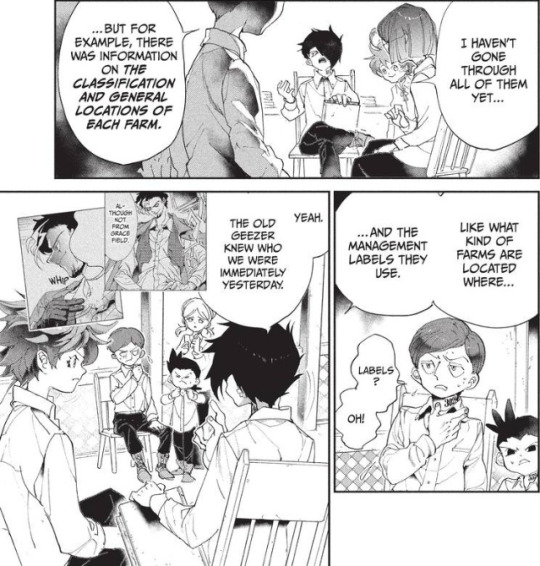
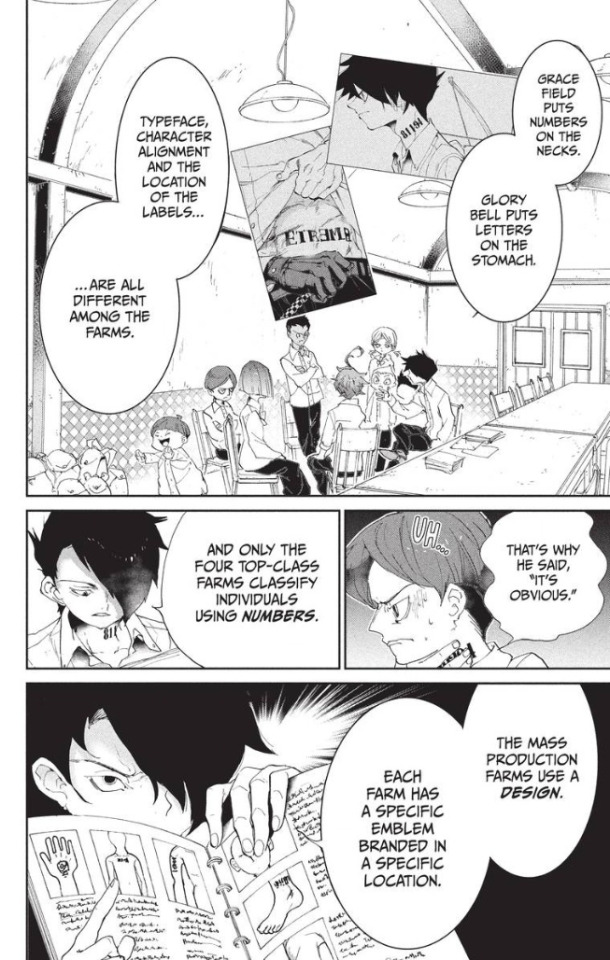
(Chapter 56)
Glory Bell’s, Goodwill Ridge’s, and Grand Valley’s placements are more easily hidden with clothing, but Grace Field’s takes a little bit more flair to hide in the warmer months. Yuugo is immediately able to tell where the kids are from because of this placement, something he wouldn’t be able to do with the other farms. It makes me wonder if Grace Field children in particular would consider removal the further along they are in life to avoid receiving pity.
[Tangentially related to this, the arrival of all these children might spark a trend of human world denizens opting for some misguided tattoo choices in a similar manner to what happened with the release of Stranger Thİngs season 4:
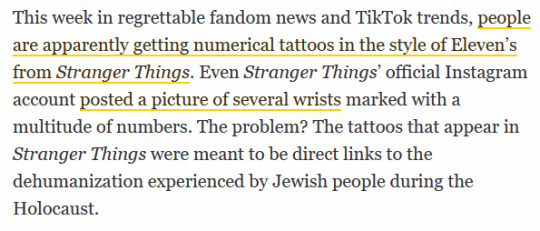
so another aspect that might factor into this decision.]
3. Paradoxical Sense of Kinship
This is the most thematically resonant reason that’s made most apparent by Emma losing her tattoo as a symbol of the new promise she’s forged and the memories of her family that she’s sacrificed.

(Chapter 181)
With the paradox being that these numbers were used in order to dehumanize them and catalog them as merchandise.
Growing up in Grace Field, the children undoubtedly saw images of people in books from the human world without numbers on their necks. It makes me wonder if the Moms of each house were given free reign on how to explain why this was so to their children or if there was a standard response passed down from HQ, because it is something that the kids notice before they’re aware of the truth in the manga instead of the ominous framing for the sake of the viewer in the anime.


(Chapter 1; I default to the demons flipping them as another hurdle to deter the children from catching on to how closely grouped together they actually are, but like)

(at some point multiple kids must have stood in front of the mirror together and seen the reverse. “If you’re not primed to look, you’re not going to see it,” yes, but still, lol. Chapter 181.1)
Once they escape the house, we again have those panels from chapter 56 of Nat and Thoma shuddering at the real purpose of the marks they’ve carried for their entire lives.

And yet before and after this realization the children of Grace Field undoubtedly took comfort in seeing those similar markings so prominently on each other. As Don states in the English dub of the first episode, “even if we aren’t blood-related, we’re truer siblings than most.” They were brought together by circumstances unknown to them, but they all saw those numbers as a way they were tied together. So despite having the most obvious placement, I feel like the Grace Field children would be the least likely to opt for tattoo removal.
(You could further split up this up by how old the unaware Grace Field children were upon arriving in the human world. It wouldn’t be hard to imagine there being some dissonance between younger children who barely remember life in the demon world and older ones who were nearing the shipment age who bonded with the other children in their orphanages.
And then with the oldest cattle children—the caretakers of the various farms who learned of the truth and were forced to comply with the cruel system laid out before them or die—their memories of their time in HQ might mar any positive association they had with their tattoos as a sign of familial unity in their childhoods.)
By contrast, Grand Valley’s tattoo placement is on the chest.

(Chapter 69)
And Glory Bell’s on the stomach as shown by Yuugo. Combined with the different settings of towns and teachers as caretakers as opposed to smaller family units intentionally framing themselves in that manner, I feel that this could lead to a greater sense of dissociation between the tattoos and a sense of kinship for all the cattle children not from Grace Field, thus potentially making it more likely they would be open to removing them at some point in the human world. Out of sight, out of mind.
Of course, all these characters are their own individuals and with enough proper set-up, I think fanfic authors could reasonably justify any of the cattle children removing these markings within the anime or manga canon or in No Reward AUs where Emma doesn’t lose her memory or her numbers. But these are the general trends I would default to if the topic is put forth in a fanfic, and I’d be interested in contrasting perspectives from characters either as the focus of a shorter piece or a reoccurring point of contention in a larger one.
#The Promised Neverland#Yakusoku no Neverland#TPN#YnN#TPN Norman#YnN Norman#Norman 22194#Long Post#Human World Arc#TPN 179#TPN 181.4#Epilogue#Post-Canon#Post-Canon AU#FSS Chatter#Goldy Pond Crew#Emma#Norman#Ray#Nat#Thoma#me whenever I'm halfway through writing one of these posts:#did Shirai...ever address this in an interview with like a five-word response because it's like a “duh” thing#but this is just me musing what conversations in the human world might be like for them#one of the most striking lines regarding this topic in fic that I've read#described Ray seeing the Grace Field tattoos from far away as a dark slash dividing their necks in half#foreshadowing their eventual grizzly fates#or perhaps it was specifically regarding Norman during a final conversation before his shipment as he dons the shipment outfit#either way‚ very stark and haunting and good
102 notes
·
View notes
Text
Assistir Filme Skin: À Flor da Pele Online fácil
Assistir Filme Skin: À Flor da Pele Online Fácil é só aqui: https://filmesonlinefacil.com/filme/skin-a-flor-da-pele/
Skin: À Flor da Pele - Filmes Online Fácil
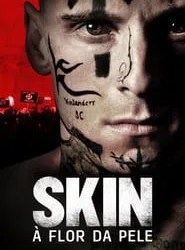
Bryon Widner é um jovem homem que foi criado por skinheads notórios na comunidade de supremacia branca. Decidido em mudar sua vida, ele vira as costas para todo o ódio e a violência que foi ensinado, com a ajuda de um ativista de direitos negros.
0 notes
Photo

“Real family don’t make you owe shit.” Skin (2018)
#film#film quotes#movie#movie quotes#life#life quotes#family#screencaps#skin#2018#skin movie#jamie bell#bryon widner#quote#quotes
58 notes
·
View notes
Text
Skin
Story:Bryon Widner wurde einst von zwei glühenden Anhängern der “White-Supremacy-Ideologie” von der Strasse geholt und aufgezogen. Von Kopf bis Fuß mit rassistischen Tätowierungen bedeckt, lebt er ein zerstörerisches Leben, in welchem Gewaltverbrechen an der Tagesordnung liegen. Als er bei einer Versammlung die alleinstehende Mutter Julie und deren drei jungen Töchter trifft, wächst in ihm den…
View On WordPress
#American History X#amerikanische Rechte#Arnaud Potier#Aussteiger#Bill Camp#Biopic#Blood and Honor#Bryon Widner#Dan Romer#Daniel Henshall#Danielle Macdonald#Dillon D. Jordan#Drama#Exit#Guy Nattiv#Jamie Bell#Kriegerin#Kylie Rogers#Louisa Krause#Mike Colter#Naziaussteiger#Nazis#Neonazi#Oren Moverman#Rassenhass#Rassismus#Rechte Skinheads#Romper Stomper#Skin#Skinhead
0 notes
Link
Shocking Truth as a Skinhead Defects
#janet walker#haute-lifestyle.com#skin#guy nattiv#jamie bell#danielle macdonald#vera farmiga#mike colter#bill camp#mary stuart masterson#bryon widner#julie widner
0 notes
Text
Skin: The white supremacist who developed a conscience (Interview)
Skin: The white supremacist who developed a conscience (Interview)
Media Screening (Maven Pictures) Duration: 110 minutes
Having not been familiar with the story or having any preconceptions, as a viewer a vexatious undertone of sympathy toward the character pays off as we’re taken on a journey to understand how Bryon’s extreme views and violent hate has come to be. The closing credit’s of the film at the State Theatre gave way to a round of applause from…
View On WordPress
#sff19#sydfilmfest#Australian Film Industry#Bryon Widner#Documentary Review#Jamie Bell#Jamie Bell Filmography#Jamie Bell Rocketman#Movie Critic#Movie Review#Skin#Sundance Film Festival Winner#Sydney Film Festival#Sydney Movies#White Supremacy Movie
0 notes
Video
youtube
SKIN trailer released Skin is an American biographical drama film written and directed by Guy Nattiv. It follows the life of former skinhead group member Bryon Widner, and stars Jamie Bell, Danielle Macdonald, Daniel Henshall, Bill Camp, Louisa Krause, Zoe Colletti, Kylie Rogers, Colbi Gannett, Mike Colter and Vera Farmiga.
#Bill Camp#Bryon Widner#Colbi Gannett#Daniel Henshall#Danielle Macdonald#Guy Nattiv#Jamie Bell#Kylie Rogers#Louisa Krause#Mike Colter#Skin#Vera Farmiga#Zoe Colletti
1 note
·
View note
Text
SKIN WINS! Short Co-Produced by Daryle Lamont Jenkins Nabs the Oscar
SKIN WINS! Short Co-Produced by Daryle Lamont Jenkins Nabs the Oscar
We want to thank the Academy…for giving us the opportunity to say that for real! And props to Guy Nattiv and Jaime Ray Newman for this excellent win! The feature-length movie of the same name hits theaters July 26!
(more…)
View On WordPress
0 notes
Text
Genre: Biographical Drama, Crime
Plot: Based on the true story of Bryon Widner.
A destitute young man, raised by racist skinheads and notorious among white supremacists, turns his back on hatred and violence to transform his life, with the help of a black activist and the woman he loves.
He undergoes painful treatments to remove the tattoos covering his entire face and body, the physical representation of the hate he exhibited to the world for more than half his life.
Story Location Based in: Michigan, Indiana, Tennessee
Character (Actor): Bryon Widner (Jamie Bell) Julie Price (Danielle Macdonald) Slayer (Daniel Henshall) Fred 'Hammer' Krager (Bill Camp)
2 notes
·
View notes
Text


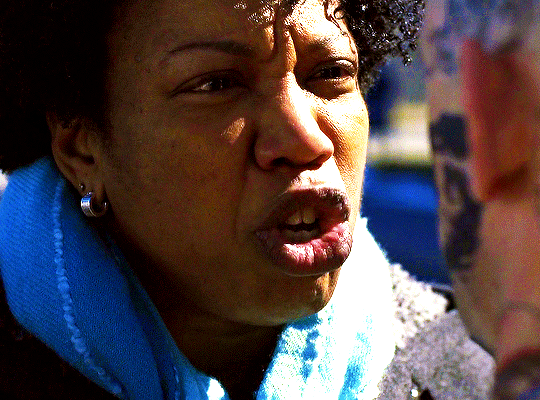
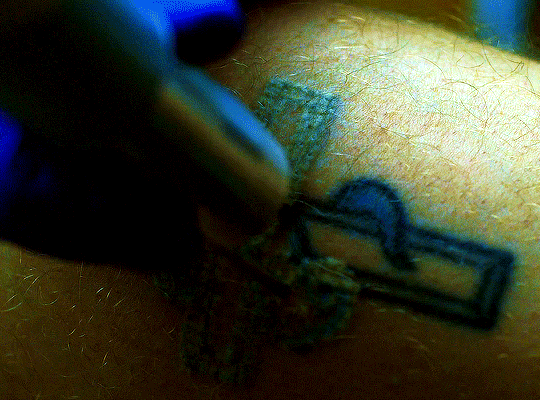



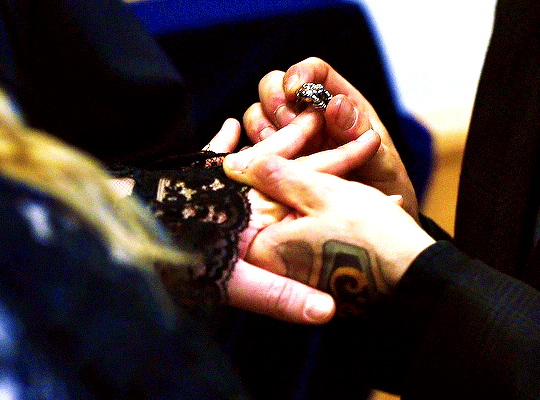


I think real family don't make you owe shit.
Skin | 2018 (dir. Guy Nattiv)
#jamie bell#danielle macdonald#fyeahmovies#cinemapix#filmedit#dailyflicks#filmgifs#moviegifs#skin#jamiebelledit#jbelledit#daniellemacdonaldedit#bryon widner#moje
11 notes
·
View notes
Text
OSCAR 2019
Por: Uzziel Torres

Este 24 de febrero tuvo lugar la gala de los premios Oscar, en su 91° edición, y como siempre han dado de que hablar. Así que aquí en El Llano En Llamas no queremos quedarnos fuera sin dar nuestra opinión sobre las películas que resultaron ganadoras.
Primero, y como ya es costumbre, se entregó el premio a mejor actriz de reparto, el cual realmente no importaba quien lo ganara; no porque el premio no tenga un valor relevante, sino porque todas las actrices nominadas eran justas acreedoras a la estatuilla. Obviamente aquí apoyábamos principalmente al talento mexicano, Marina de Tavira, quien hizo un gran trabajo interpretando a una mujer estresada por los problemas que ocasionan una separación y el cuidado de sus cuatro hijos por si sola. Sin embargo, ganó Regina King, actriz afroamericana que nos hace creer que la academia le interesa más ser incluyente y políticamente correcta que realmente premiar el arte.
Después le siguieron los premios para las categorías de sonido, edición, maquillaje, vestuario, diseño de producción y banda sonora. Ponemos todas estas premiaciones en un mismo saco, ya que, parece que sólo sirvieron para justificar las nominaciones a Black Panther y Bohemian Rhapsody, puesto que les dieron la estatuilla a estas cintas que ni si quiera deberían estar nominadas. Y no es que sean malas películas; pero con esto, una vez más vemos como a la academia le interesa más mantener su audiencia que realmente premiar el arte. En esta primera ronda destacamos las injusticias a la edición de sonido de A Quiet Place, a el vestuario de The Favourite y al diseño de producción de Roma.
Posteriormente la ceremonia mejoró dando los justos reconocimientos a filmes como First Man por sus efectos visuales, que no eran tantos ni tan notorios como los de Avengers o Ready Player One, pero que cumplían el propósito como herramienta de ambientación; a A Star Is Born por su canción Shallow con las grandes voces de Lady Gaga y Bradley Cooper; a BlacKkKlansman por su maravilloso guion adaptado liderado por Spike Lee; a Green Book por su gran guion original encabezado por Peter Farrelly; a Roma por su bella y bien lograda fotografía a cargo de Alfonso Cuaron y Galo Olivares; y a Mahershala Ali por su increíble actuación en Green Book como actor de reparto.
Acercándonos a la recta final se dieron los premios individuales a las cintas siendo Period. End Of Sentence la ganadora a mejor cortometraje documental, que habla sobre la menstruación en las mujeres de la India; Skin al mejor cortometraje, este corto narra la vida del ex miembro del grupo Skinhead, Bryon Widner; Bao al mejor cortometraje animado porque pues es de Pixar; Free Solo al mejor documental, este describe la búsqueda del escalador Alex Honnold para realizar una escalada en solitario libre de El Capitán; Spider-Man: Into The Spider-Verse como claramente la mejor película animada sobre Incredibles 2 y Isle Of Dogs; y Roma como la mejor película extranjera, reconocimiento bien merecido y que nos sabe mejor, ya que, competía contra las grandes Cold War y Shoplifters.
La ceremonia concluyó con los cuatro premios que más emocionan: mejor actor, mejor actriz, mejor dirección y mejor película. Después de venir dando las estatuillas a quienes las merecían, volvieron a cagarla dándole a Rami Malek el título de mejor actor cuando se encontraba contra los grandes trabajos de Christian Bale en Vice y de Viggo Mortensen en Green Book. Posteriormente nos volvieron a romper el corazón, pues, creíamos que la academia volvería a actuar a favor de las minorías y le daría el premio a Yalitza Aparicio, pero se encontró con unas amenazantes Glenn Close, Melissa McCarthy, Lady Gaga y Olivia Colman, fue esta última quien arrasó con todas y se llevó el premio.
Sin embargo, todavía podíamos irnos felices a nuestras camas si Alfonso Cuaron y Roma ganaban las dos últimas categorías. Alfonso sí consiguió su muy justa estatuilla al demostrar toda la experiencia que ha adquirido en 27 años de carrera para entregarnos su gran obra tan personal. Lamentablemente no obtuvimos el final que esperábamos puesto que su película Roma, ya que, a pesar de tener diez nominaciones, a pesar de ser extranjera, a pesar de ser de Cuaron, a pesar de tenerlo todo, perdió ante Green Book, una película que trata sobre el racismo. Así, una vez más la academia nos demuestra que le interesa más ser incluyente y políticamente correcta que realmente premiar al arte.
1 note
·
View note
Photo

Jamie Bell as Bryon Widner in Skin (2018), directed by Guy Nattiv
13 notes
·
View notes
Photo

Jamie Bell’s new movie SKIN will also premiere at TIFF.
Jamie Bell stars in the true life story of Bryon Widner, a young man raised by skinheads, for whom turning his back on hatred and violence meant undergoing painful and expensive operations to remove the tattoos that signified his terrible past life — a process only possible with the support of a Black activist.
5 notes
·
View notes
Text

Abordando temas extremamente atuais e relevantes como o racismo, fascismo e supremacia branca, o ganhador do Oscar de melhor Curta-Metragem por “Skin” (2018), o diretor e roteirista israelense Guy Nattiv lançou o longa homônimo, aclamado pela crítica durante o Festival de Berlim de 2019. Em sua obra, o cineasta aborda de maneira sensível, humana e tocante, a jornada em busca de redenção de um homem doutrinado para cometer atos de extrema violência, disseminando o ódio através do discurso neonazista.
Na trama, o protagonista Bryon Widner – interpretado de forma brilhante e visceral por Jamie Bell (“Billy Elliot”) – é um supremacista radical dos EUA. Apesar de suas ações sanguinárias e extremistas, Bryon se mostra cansado de seu modo de vida regado a crimes e devassidão. O protagonista vê na relação com Julie (Danielle MacDonald), mãe de três meninas, uma forma de construir laços afetivos e ter uma família.
“Skin” narra os caminhos de Bryon em busca de redimir seus crimes, mudar de vida e apagar as diversas tatuagens referente à supremacia branca que carrega no rosto e no corpo. O longa é baseado na vida do ex-skinheads Bryon Widner, integrante de uma gangue chamada ‘Vikings’, responsáveis por uma série de ataques e assassinatos de negros e imigrantes.
A obra de Nattiv é uma pérola do gênero, capaz tocar, incomodar e emocionar na mesma intensidade. O ponto alto da produção é nunca soar grandioso em sua narrativa ou ter a pretensão de ser único. Guy Nattiv não vai na contramão dos clássicos do gênero, usando artifícios já conhecidos da temática. “Skin” é um belo filme por narrar uma história real, contando com atuações verossímeis de seus intérpretes. No primeiro ato, somos apresentados a Bryon Widner que, apesar de seu jeito assustador, tem um lado humano e dócil no momento em que está com seu cão Boss ou quando defende três meninas após uma agressão.
Se em “Billy Elliot” Jamie Bell revelou todo seu talento para o drama, em “Skin”, o ator é coroado como a grande estrela do filme. Bell está completamente entregue ao seu personagem em uma atuação visceral, pesada, conseguindo mesclar cenas de puro ódio e amor com a mesma intensidade.
O roteiro contribui muito para a construção de seu protagonista, mas, é nas mudanças faciais do ator que vemos o quanto ele é grande. Jamie traz um personagem perdido, humano, doutrinado para cometer atos de pura violência em uma vida amoral, baseada em um discurso de ódio. Infelizmente, o roteiro derrapa em utilizar Julie como o único laço afetivo que instiga Bryon a mudar de vida. Ao final, fica claro que o protagonista tinha outra pessoa que lutou por ele e com o qual ele criou um laço tão grande quanto Julie e suas três filhas.
O filme não soa didático em nenhum momento, mas peca por romantizar alguns atos de seu protagonista ou por se tonar pouco real na metade do segundo ato. Apesar do roteiro ser um pouco mais florido em alguns pontos, a montagem salva em momentos cruciais, principalmente, com o ótimo uso de flashfowards, que aguça a curiosidade de quem assiste. A jornada de retirada das tatuagens assustadores de Bryon reflete a coragem, a força e a resiliência de seu personagem. Em seu desfecho, “Skin” deixa uma mensagem esperançosa de uma vida construída em tempos de ódio, regenerada.
0 notes
